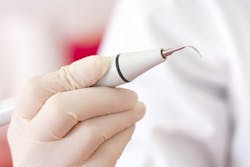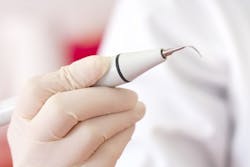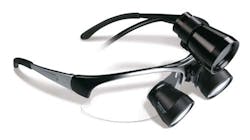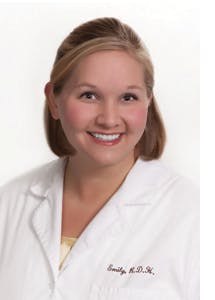Ask Emily: Ultrasonic, loupes, and calling a patient’s MD
By Emily Boge, RDH
November 25, 2013
When I was in school we had to use ultrasonic on every patient to flush out bacteria. Now that I am in a private dental office, the other two hygienists rarely use the ultrasonic units at all. Should I use the ultrasonic as I was taught to, or should I do what everyone else does? Is it okay as a new employee to do things different? How do I talk to the patients about the ultrasonic?
Cheryl
The new hygienist: Having your cake and eating it too
Dear Cheryl,
First of all, I have to say thanks for reading!
I swore I would never say this but… “back when I was in school” we did not use the ultrasonic on every patient. There were about a dozen ultrasonics, and we used them to “comp out” of the technique itself. Ultrasonics were not new by any means, but we used air-powered oral irrigation handpieces instead. Regardless of the tool of choice, I personally prefer the ultrasonic; I agree that sulcular irrigation is very beneficial to the decontamination and healing of the tissue. I still use syringe-irrigation with Chlorhexidine Gluconate 0.12% at times to flush out the pockets; it just depends on the situation. This might be one of those judgment calls that you will make as you learn and grow as a hygienist. I encourage you to attend local and state dental hygiene association meetings, where questions like these can be discussed in an open-minded environment.
As for what the other hygienists do, I am a firm believer that there is more than one “right way” to do things. My advice is to read the research, and practice as you feel is in the best interest for whoever is in your chair. Sometimes people get caught in a rut, and for whatever reason choose to practice the same way they were taught in school for their entire career. It is exciting that dental hygiene is changing, and I think the people who take the path of stagnation may burn out over time. As for the patients, I can give you a script sample:
Patient: “What is that thing? Heidi never used that before when she cleaned my teeth.”
Cheryl: “This is an ultrasonic cleaner. It is a little tiny power-washer that flushes out all the germs. It helps to keep the gums strong.”
Patient: “Why didn’t Heidi use that the last time?”
Cheryl: “We each use the tools we feel are best for the condition your gums are in on the day you come in. We all want to do what’s best to keep you healthy.”
This conversation puts no one at fault and blames no one, while stating to the patient that each clinician in the office is focused on the same mission.
I hope this helps!
We were required to buy loupes in school. Do you think it is worth the money to buy the headlight that fits on the loupes? It is very expensive, but if it will help me stay in practice longer I want to do what is the best.
Sam
Dear Sam,
My top three “investments in hygiene” were my loupes (purchased by my employer), my saddle stool, and my headlamp. Each purchase was not inexpensive, but together they work as a unit to decrease my trips to the chiropractor down the street from the office. My headlamp was one of my best investments because with a headlamp you can see so much better – in both the anterior and posterior – without contorting your body to reach the overhead lamp or position yourself as to not block the overhead lamp. I particularly enjoy the model of headlamp I own because it can be adjusted in brightness or turned on or off by touch through my lab jacket with my inner elbow. This reduces cross-contamination in the operatory, and increases ease of use. I honestly tell other hygienists that I did not know what I was missing before I had my headlight, and I totally think it is worth every penny.
Do you call medical providers to ask them questions about patients? I work for a dentist who does not want me to call the medical offices of my patients because he feels we are separate from them and he does not want the patients to think we do not know what we are doing. I do not agree.
Help!
Erin
Dear Erin,
Bridging the communication gap between medical and dental providers is a challenge that is nationwide. As research continues to support the relationships between oral health and other systemic conditions, I feel it is more important than ever that patients recognize that all healthcare providers want to work together to improve the well being of those we treat.
I call medical providers of all levels (doctors, PAs, nurse practioners, cardiologists, oncologists, etc.) if I have a question. I have also called pharmacies with concerns. Asking others for assistance when you want to collect data does not make you weak or foolish – it shows great intelligence to desire an informed decision for a patient. In my experience, patients are quite thankful for any extra time we take to give them the best treatment we can give. My advice is to ask your employer if you can discuss his opinion on this subject so you can have greater clarity.
Best wishes,
Emily
____________________________________________
More Ask Emily columns:
- BHT, fluoride options, and parents at pediatric appointments
- Why patients forgo X-rays, why you should stir the pot on infection control, and how dental hygiene school is a lot harder than it looks
- Treating kids, using napkin chains, and paying for your own uniform
____________________________________________




